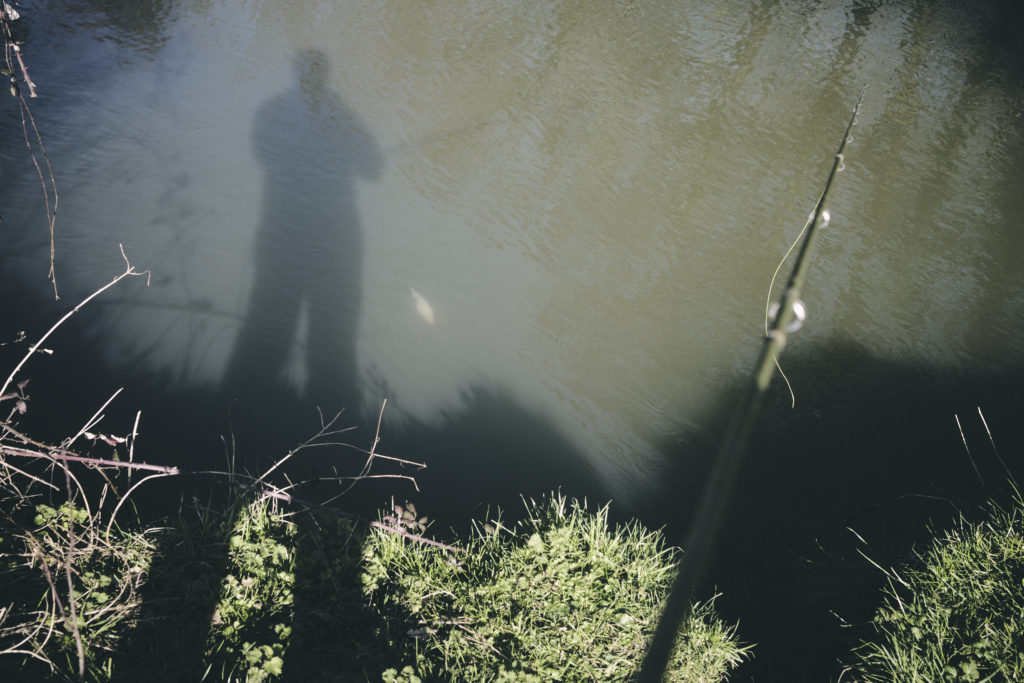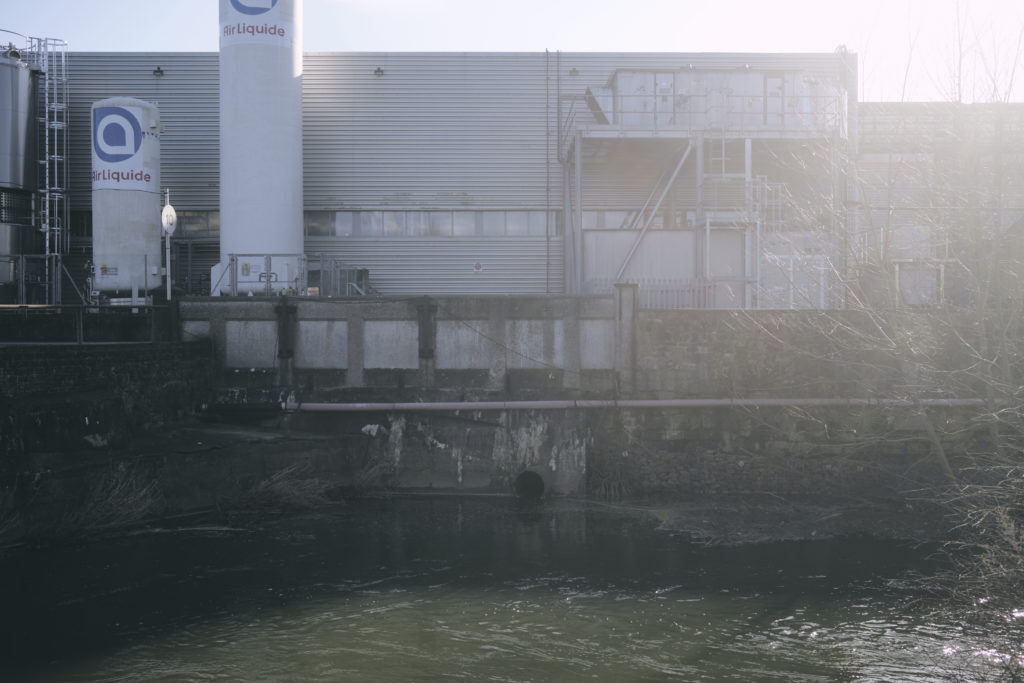Malcolm Anderson sees out the coarse season on a brand new river.

It’s been six months since we moved out of Savages Cottage, where we’d lived for the past six years in something as close to isolation as it’s possible to get in Southern England. Set deep within 5500 acres of stately-homed private estate, a mix of oak and beech woodland, intensive arable fields and rough chalk downland.
We were truly privileged to be a part of a working estate, to actually feel like a part of the estate rather than just being people that paid rent. It’s hard to put into words that sense of belonging — it goes far beyond the free firewood and occasional pheasant and vension dinner; more a part of a small rural community who I think knew that they could rely on each other when needed.
For all that isolation I often felt we were surrounded by more people than in all those years living in Salisbury.
Our lives at Savages were also inextricably connected to the changing seasons. The leverets in the garden, the arrival of the housemartins. The blossoming of the blackthorn and hawthorn. Clearing the ditch in the lane to stop the drive flooding with manure-laden water in heavy winter rains. The first potatoes. Sawing, chopping and stacking tonnes of wood delivered by tractor in 3m lengths. The one warm room in the house with stew simmering on the stove.
Living in Savages was hard work, there’s no question about that — sometimes it felt like a millstone around our necks — but in part it was this understanding of shared work, of the conditions that we all accepted in exchange for living where we did, that tied all of us in the working cottages of the estate together.
But there comes a point where the mould has grown right across the bedroom ceiling by Christmas, despite you having treated it in October. Where your pictures are warping on walls, your books are getting black spots on all the pages and you have to be careful opening the shed door as the roof is likely to collapse. There comes a point where (pre the current energy crises) you’re facing thousands of pounds worth of electricity bills for a handful of 30-year-old night storage heaters that don’t work and have spent two years fighting over a dodgy electricity meter recording usage overnight even through the master trip switch is turned off.
There comes a point where you know it’s time to go.
So we upped sticks to Somerset and moved into a small market town with no market, that neither of us knew. On top of this, following redundancy from the National Trust after thirteen years in post, I took a new job with the RHS which has seen me trying to learn an entirely new organisation and get to know a whole new set of gardens.
As a result, the last six months have been spent in some kind of daze at being able to walk to the greengrocer, butcher and baker (sadly I’m yet to find a candlestick maker), settling into a new house and a new town and my head has been swimming with the excitement of the new job. To put it mildly, my head’s been full.
Last week I got off the train in Gillingham after a day looking at a recycling operation in Leatherhead (I know, be still my beating heart). The sun was warm and as I walked down the main road I suddenly realised that the thorn hedge next to me was in full bloom and looking glorious against the warm sunshine.
Wait. What?
It’s spring? How? But I haven’t had my winter fishing yet.
The move, the new job, being in town for the first time in many years. Whatever the reason, in that moment I realised that I’d lost that connection to the seasons along the way somehow, and from a fishing point of view I only had one weekend left before the end of the coarse season. So I made a plan.
Saturday dawned bright and still. Not great pike fishing conditions I’ll admit. It’s a day of that particular winter brightness that starts right down low against the horizon, a white over-exposed light that makes you squint against your sunglasses, and casts long, hard-edged shadows across the muted fields and the light-fractured surface of the fathomless dark of a winter river.
That March cold where you know that you’ll freeze if you don’t layer up and forget your hat, but likewise will be roasting for a couple hours around lunchtime if you wear too many layers.
But I’m going anyway.
Moving to Somerset means I’m not living on top of the Wiltshire chalkstreams where I’ve spent the last twenty-five years. So I’ve joined Frome and District Angling Association and now have access to all new rivers, all new places to explore and try to understand better. It means I have new lanes to negotiate and new stiles to find, new depths to work out, new swims to fixate on. But I’ve only got one weekend left for this season.
I park up just across a stone bridge on the outskirts of Frome. Downstream from me the river is wide and shallow as it ripples along in the shadow of a set of ugly factory buildings.

An old alder, dead stems bleached by the sun, holds a private fishing sign. Beneath it is a shady slack that holds my attention for a while. I cast the pike fly out into the main current then mend line up into the slowly swirling eddy, letting the fly sink a little as it pulls against the direction of the river and is sucked up into the root void under the tree. A slow, intermittent retrieve makes the five inches of shimmering silver fly dance and reflect glimpses of light in the obscure shadowy depths.
I’m caught here for a while, even though I’ve pretty much given up hoping that I’ll actually catch anything from this hole. Time passes and my awareness contracts, I’m hypnotised by this moment and this swirling space.
It’s often this way I find; that the angler is captivated by the cast, the swing of line, the retrieve. By the light catching the fly, by the rotating bubbles on the water’s surface, by the sound of the current passing over and under a branch. Caught by the act of fishing itself, rather than the fish.
I’m brought from my reverie by the high-pitched whistle that announces the presence of a kingfisher long before I see the flash of turquoise and orange in the corner of my eye. I’ve often heard it said that Kingfishers have no song, which seems unbearably sad to me.
I pass the weir, taking particular interest in the well oxygenated shallows at its downstream edge for the beginning of trout fishing season, and keep walking downstream. Past the factory, along daffodil, snowdrop and primrose studded banks and out across the meadows.
I keep walking, casting the fly into likely slacks, backwaters and eddies but nothing happens.
Well, some things happen, I just don’t catch any fish. The sun rises higher in the cloudless sky, the jacket comes off and the shadows shift across the early spring grass. I have a cup of tea from my flask with my back propped against an old willow. A buzzard keens mournfully somewhere up against the endless blue.
I may have rested my eyes for the briefest of moments.
The day disappears in that easy way that all the best days do, like those endless summer days in the untamed wilds of West Dorset as a child. There’s no plan, nowhere to be, just the passing of time from tick to tock. But still I catch nothing.
It doesn’t matter.
Much.